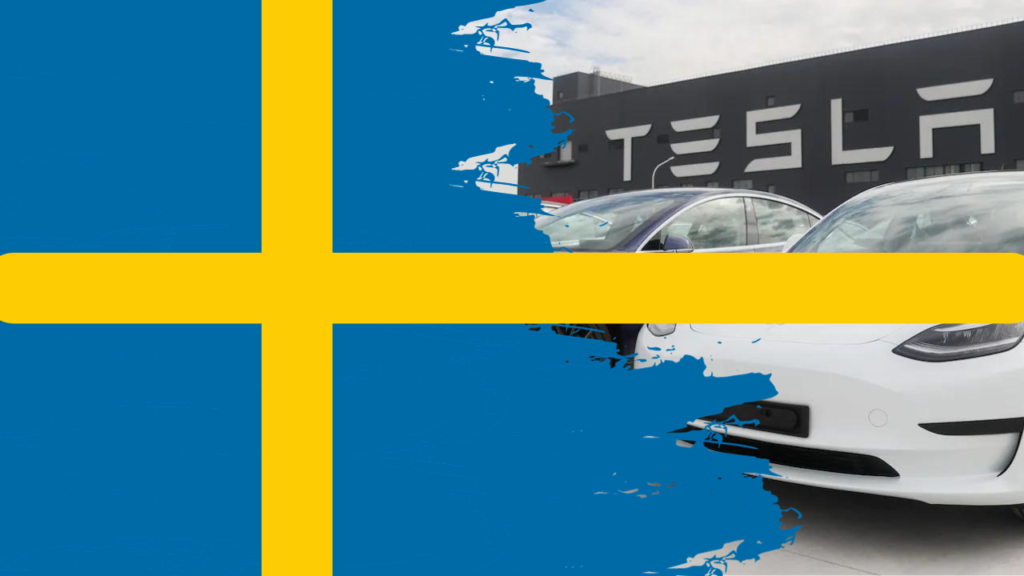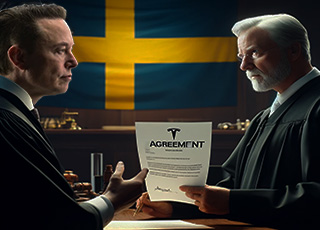In a legal saga that could rival any Nordic drama, Tesla, led by the indomitable Elon Musk, finds itself entangled in legal battles with the Swedish Transport Agency and Postnord. The lawsuits, filed on Monday, November 27, shed light on a complex narrative revolving around Tesla’s pursuit of access to number plates for its vehicles.

Dueling in the Legal Arenas
This legal duel unfolds on two fronts, with Tesla making its case at Norrköping District Court against the Swedish Transport Agency and simultaneously filing another case at Solna District Court against Postnord, the Nordic postal service.
At the heart of the matter is Tesla’s claim that striking workers in Sweden have orchestrated a “targeted, baseless, and discriminatory attack,” obstructing access to number plates and affecting Tesla, its employees, and customers.
Court Intervention: A Temporal Triumph
To counter these disruptions, a court order swiftly emerged, granting Tesla an interim safety measure. This measure allows Tesla to collect number plates directly from the manufacturer while the legal process unfolds. The Norrköping District Court’s prompt approval of this request marks a temporary triumph for Tesla in gaining control over its number plates.
However, the Swedish Transport Agency vehemently contested the court’s decision, arguing that it violated their agreement with the supplier and citing security concerns that dictate the plates should only be delivered by Postnord.
Anna Berggrund, Director of the Vehicle Information Department at the Swedish Transport Agency, defended their position, stating, “Our mission is to provide license plates through procured suppliers. We have fulfilled this by taking the plates to Postnord.”
Court’s Verdict: Balancing Act
The district court’s decision mandates the Swedish Transport Agency to agree, within seven days, to allow Tesla to pick up license plates directly from the manufacturer, under the risk of a substantial fine of SEK 1,000,000. The court deemed the security measure proportionate, navigating a fine line in balancing Tesla’s interests against established agreements.
The Road Ahead
With the court’s decision in place, the Swedish Transport Agency has a limited timeframe of 14 days to lodge an appeal. If an appeal is initiated, the district court will be compelled to re-examine the matter.
This decision was rendered without hearing the other party, a move justified by the court’s assessment of a risk of delay. Acknowledging the “considerable damage” incurred by Tesla and its customers daily, the court aimed to expedite the resolution.
In response to the court’s decision, Tesla issued a concise statement expressing relief, emphasizing that the ruling ensures the continuous delivery of new cars to their customers.
Tesla’s Stance on Unions
Operating globally as a non-unionised company, Tesla, with its extensive workforce, has consistently rebuffed calls for union formation. The current turmoil stemmed from a strike by IF Metall, the union representing mechanics, with other Swedish unions joining in sympathy measures to force Tesla to sign a collective agreement. Despite belonging to local unions in Sweden, the striking Tesla workers at IF Metall are excluded from sectoral collective agreements as a result of the company’s non-unionized stance.


